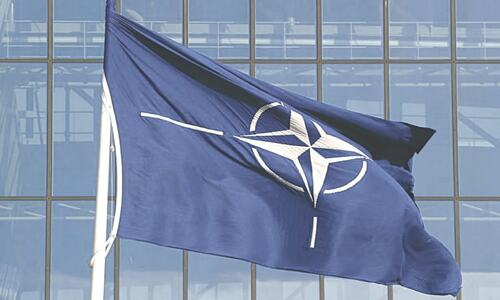MOSUL, Nov 18: If any indication was needed of how events in Iraq can turn on a dime, switching from order to mayhem in moments, it happened last week in Mosul. The northern city of two million people went from relative calm to the brink of chaos in the space of a few hours , and then stayed there for the next two days.
Groups of up to 50 armed men staged coordinated attacks around the city, storming and overrunning at least seven police stations, robbing them of weapons and vehicles and then setting some ablaze.
Recounting the events of Nov. 10-11, Brigadier General Carter Ham, the commander of US forces in northern Iraq, said on Thursday he became aware of just how serious the situation was when the militants decided to hold their ground and fight, rather than cut and run as they normally do.
"Right then we knew something significant had happened," he said. They came as US forces stormed the rebel bastion of Falluja, near Baghdad, and was in part a reaction to that assault, he added.
"There was a higher level of coordination than we had previously seen, with local command and control," Ham told reporters in Iraq's third biggest city. "It was a very dangerous enemy that we were faced with."
Events began when guerrillas fired rocket-propelled grenades (RPGs) at a convoy of cars carrying security contractors through central Mosul. At least one vehicle was hit and went up in flames. As US forces arrived to help, they too were attacked.
A platoon of US Stryker vehicles - heavily armoured, eight-wheeled troop carriers - was hit by no less than seven roadside bombs, four RPGs, rifle fire and an anti-aircraft gun in the space of a few minutes as it rushed to help out.
"It was crazy. It felt like we were in the middle of a rainstorm there was so much coming down on us," said Lieutenant Benjamin Pry, 25, the commander of the four-vehicle platoon.
"There must have been 40 to 50 guys in two- or three-man teams on rooftops and along the road just unleashing on us."
MASS DESERTION: Shortly afterwards, guerillas began attacking Mosul's police stations, causing hundreds of policemen to flee, and allowing militants to make off with around 50 police cars, hundreds of weapons and radios, and thousands of police uniforms, Ham said.
But perhaps the clearest indication that events had gone from uncertain to chaotic was the behaviour of the police.
Of Mosul's 4,000 police, Ham estimates more than three in four deserted - dropping their weapons and just running away. Only a little over 800 remain on the job - and because of the desertions and looting, they have been told to stay off the streets since US troops cannot trust anyone in police uniform.-Reuters















































